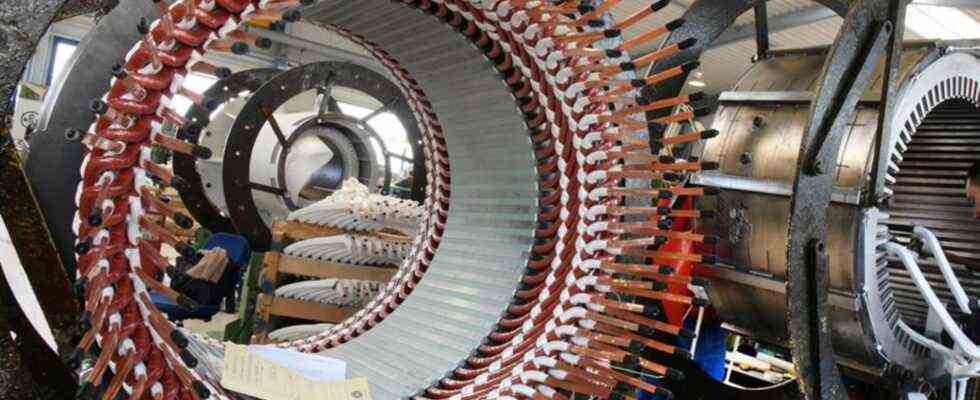Industry
Another damper for the economy: incoming orders fall
An employee of a mechanical engineering company in Bitterfeld-Wolfen. Photo: Waltraud Grubitzsch / dpa-Zentralbild / dpa
© dpa-infocom GmbH
The prospects for the German economy continue to deteriorate. Orders in the industry are falling sharply. Declining demand from abroad is having an impact.
After a significant decline in incoming orders, German industry is preparing for uncomfortable times. According to the Federal Statistical Office, orders fell by 6.9 percent in October compared to September.
There was a lull in particular for large orders from abroad. Compared to the same month last year, incoming orders fell by a total of 1.0 percent. “The declining orders from abroad show that the environment is becoming more uncomfortable to attract orders from abroad,” said Jupp Zenzen, economic expert at the German Chamber of Commerce and Industry (DIHK), on Monday.
According to the Federal Ministry of Economics, orders had reached a record high by the middle of the year. “The second sharp decline in incoming orders within the last three months means a further setback for the economic outlook,” said the ministry. However, the development should not be overinterpreted. Without considering major orders, only 1.8 percent fewer orders were received.
Restrained international business
While domestic orders rose by 3.4 percent in October, 13.1 percent fewer orders were received from abroad than in the previous month. In particular, fewer orders came from countries outside the euro zone, falling by 18.1 percent. According to the Federal Office, the decline is primarily due to large orders, which had risen sharply by 15.7 percent in the previous month.
Above all, significantly fewer capital goods such as machines were ordered. Intermediate goods, including metals, chemical raw materials, rubber and plastic goods, were also less ordered. In contrast, orders for consumer goods increased noticeably.
“Cold shower”
According to Thomas Gitzel, chief economist at Lichtensteiner VP Bank, the infection process in Asia is now also making itself felt. “From now on, the monthly incoming orders will be more volatile again,” he said. The industry has long been suffering from tensions in world trade, which can largely be traced back to the corona pandemic.
ING chief economist Carsten Brzeski spoke of a “cold shower” for German industry. In his opinion, material shortages and delivery bottlenecks could have led customers to hold back with orders or even cancel them, “because they know that delivery times are long anyway”. Despite the decline, the order books are still well filled.
From January through October, incoming orders rose by 20.8 percent compared to the same period of the previous year, according to statisticians. However, the industry is often unable to process orders at the usual pace because raw materials and intermediate products such as chips are scarce.

